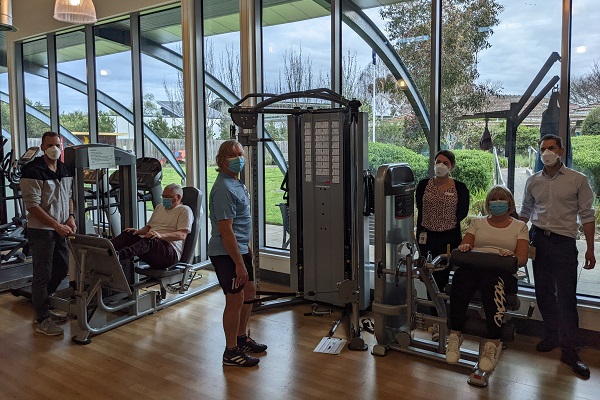About
Spotlight on osteoarthritis for World Physiotherapy Day
- Home
- About
- Latest news
- Spotlight on osteoarthritis for World Physiotherapy Day

We are celebrating World Physiotherapy Day (8 September) this week. The theme for the year is osteoarthritis and the role of physiotherapists in preventing and managing this condition.
Mary McMahon is a physiotherapist who works in our Physiotherapy Outpatients department, and with the orthopaedic team. Mary has a special interest in helping patients manage their osteoarthritis.
Mary explains that at Austin Health, "physiotherapists are involved in the assessment, treatment and management of osteoarthritis through our roles in the Osteoarthritis Hip and Knee Service, our involvement with orthopaedic patients before and after surgery, and helping people learn how to best manage their arthritis when they attend as outpatients in the physiotherapy department."
In terms of numbers, Mary says "Physiotherapy Outpatients receive around 500 new referrals for people with osteoarthritis per year. The Osteoarthritis Hip and Knee Service also receives over 500 new referrals per year."
Facts about osteoarthritis
- Osteoarthritis is the most common form of arthritis.
- Osteoarthritis is a common chronic disease that mostly affects the hands, hips and knees.
- Over 2 million Australians live with osteoarthritis, with our aging population and increased rates of obesity, this is expected to increase to over 3 million by 2030.
- Education, exercise and weight loss are the top three recommended interventions for people with osteoarthritis.
- Exercise is good for osteoarthritis and physios can help you with that.
What sort of exercise is best for osteoarthritis?
The best exercise for osteoarthritis includes:
- strength training of your muscles
- maintaining or increasing your physical activity levels.
- Walking, cycling, Tai chi, water exercises, graduated strength training at home or at a gym are all good interventions to help you manage your osteoarthritis.
Regular exercise lowers the risk of developing osteoarthritis (and lots of other health issues!) and can also prevent or delay the need for surgery in people who do have osteoarthritis.
Talk to a physio about the best way to manage your osteoarthritis, so you can keep doing all the things you want to do.


